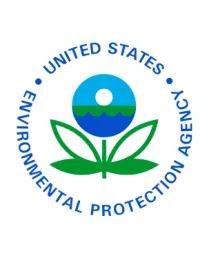On October 28, 2019, the U.S. Environmental Protection Agency (EPA) published in the Federal Register a supplemental proposal on adjustments to the percentage standards for 2020 that result from the amended definitions of two terms used to calculate the percentage standards under the Renewable Fuel Standard (RFS). Signed and pre-published on October 15, 2019, by EPA Administrator Andrew Wheeler, the notice of the proposed rule is no surprise. The proposed supplemental proposal, if approved, will establish the cellulosic biofuel, advanced biofuel, and total renewable fuel volumes for 2020 and the biomass-based diesel volume for 2021. Although the rule does not change the volumes for 2020 and 2021 proposed in July 2019, it proposes and seeks comment on adjustments to the way that annual renewable fuel percentages are calculated. Annual renewable fuel percentage standards are used to calculate the number of gallons each obligated party is required to blend into their fuel or to obtain otherwise renewable identification numbers (RIN) to demonstrate compliance. Specifically, EPA is seeking comment on projecting the volume of gasoline and diesel that will be exempt in 2020 due to small refinery exemptions based on a three-year average of the relief recommended by DOE, including where DOE had recommended partial exemptions. EPA intends to grant partial exemptions in appropriate circumstances when adjudicating 2020 exemption petitions. EPA proposes to use this value to adjust the way it calculates renewable fuel percentages.
Comments must be received on or prior to November 29, 2019.
On October 30, 2019, EPA held a public hearing on the proposed rule in Ypsilanti, Michigan, where affected stakeholders had a chance to provide testimony. One of the testimonies given was from Renewable Fuels Association (RFA) President and Chief Executive Officer (CEO) Geoff Cooper. Cooper told EPA that “this proposal fails to reflect the letter and spirit of the president’s commitment to restore integrity to the RFS, fails to assure that the statutorily-required 15-billion-gallon level for conventional biofuels will be met, and fails to restore stability in the marketplace by definitively ending the practice of allowing small refinery exemptions from eroding RFS biofuel demand.” Outlining the weaknesses of EPA’s proposal, Cooper highlighted that not only has EPA seldom followed DOE’s recommendations in deciding small refinery exemption (SRE) petitions, but also that it will not succeed. According to Cooper, because EPA bases averages of what DOE recommends and not of the waivers actually granted, and the former is significantly less than the latter, the proposed rule is not promising. Cooper’s full written testimony can be accessed here.



 />i
/>i
